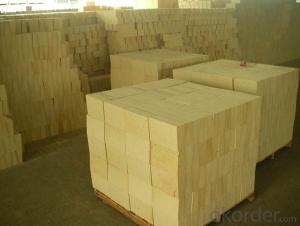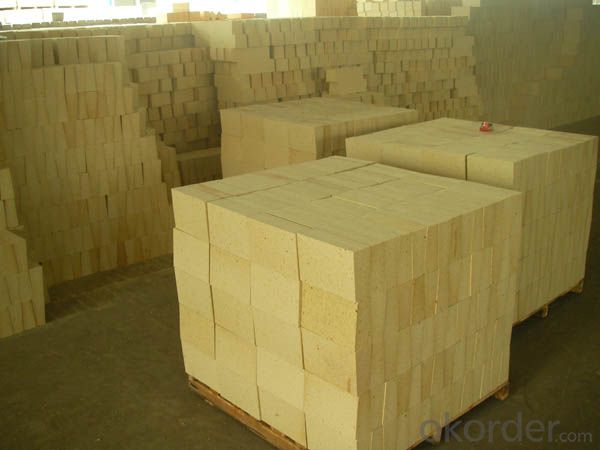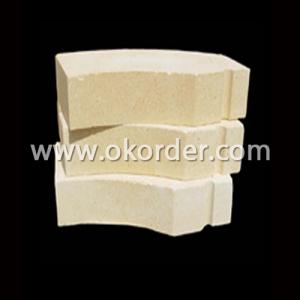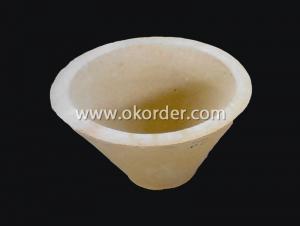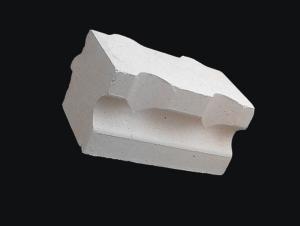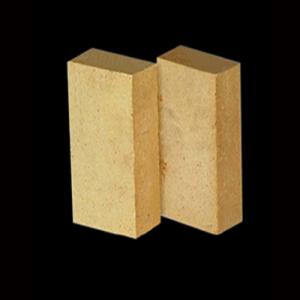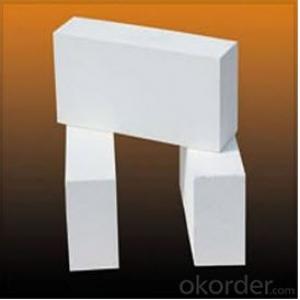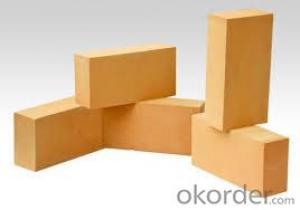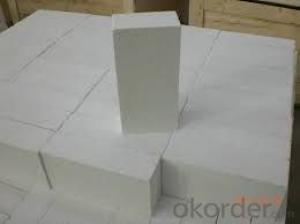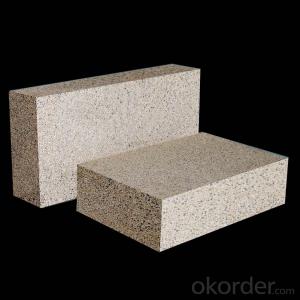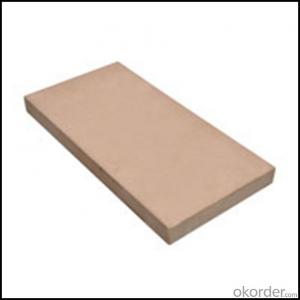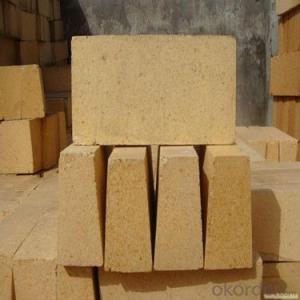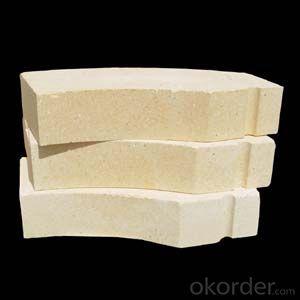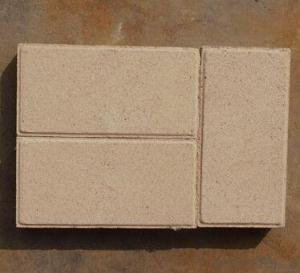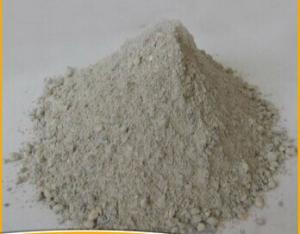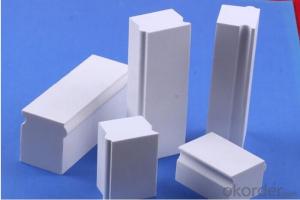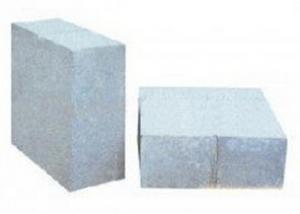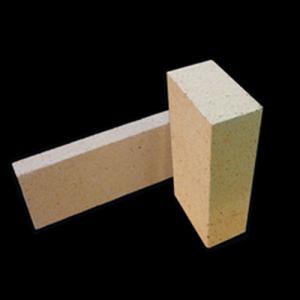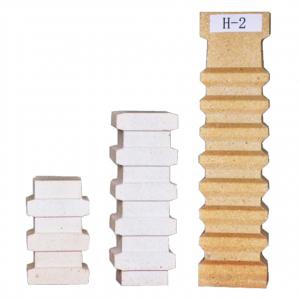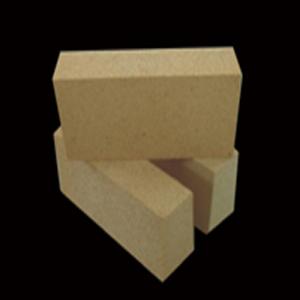High Alumina Refractory Bricks / Fireclay Bricks / Insulation Bricks (LQFB)
- Loading Port:
- Shanghai
- Payment Terms:
- TT OR LC
- Min Order Qty:
- 1 m.t.
- Supply Capability:
- 111 m.t./month
OKorder Service Pledge
OKorder Financial Service
You Might Also Like
Specifications
Refractory Brick
1-Made from high quality alumina
2-Low thermal conductivity
3-SK series,custom made
4-.ISO9001 certificated
Fire/firecaly brick
Refractory brick is dense shaped refractory material. With high refractoriness and mechanical behavior under high temperature, refractory brick is the necessary material of high-temperature services, mainly used for industrial furnaces and kilns and thermal equipment.
Refractory brick has wide applications, mainly used in metallurgy, construction(cement and glass), petroleum, chemical industry, electric power and machine building.
Linquan series alumina bricks are high quality dry pressed alumina bricks, ranging from 35% to 95% in alumina content.
Fire clay bricks
Chemical and Physical Properties | LQHAB70 | LQHAB 60 | LQHAB 50 | LQHAB 80 | |
Chemical | Al2O3; ≥ | 70 | 60 | 50 | 80 |
Fe2O3; ≤ | 2.0 | 2.0 | 2.0 | 2.0 | |
Refractoriness (SK); ≥ | 38 | 37 | 36 | 39 | |
Bulk Density; ≥ | 2.30 | 2.20 | 2.10 | 2.40 | |
Apparent Porosity (%); ≤ | 23 | 23 | 23 | 23 | |
Cold Crushing Strength | 400 | 400 | 300 | 400 | |
(Kg/cm2); ≥ | |||||
Thermal Expansion (%) | 0.65 | 0.60 | 0.53 | 800 0.65 | |
at 1000°C | |||||
Permanent Linear Change (%) | 0.3 | 0.3 | 0.3 | 0.2 | |
at 1500°C × 2Hrs | |||||
Refractoriness under Load | 1580 | 1500 | 1470 | 1670 | |
High aluminum bricks
Chemical and Physical Properties | LQH-90 | LQH 85 | LQH-80 | |
Chemical | Al2O3; ≥ | 90 | 85 | 80 |
Fe2O3; ≤ | 1.0 | 1.0 | 1.0 | |
Refractoriness (SK); ≥ | 40 | 40 | 39 | |
Bulk Density; ≥ | 3.10 | 2.90 | 2.80 | |
Apparent Porosity (%);≤ | 18 | 20 | 20 | |
Cold Crushing Strength | 700 | 600 | 600 | |
(Kg/cm2); ≥ | ||||
Thermal Expansion (%) | 0.70 | 0.68 | 0.65 | |
at 1000°C | ||||
Permanent Linear Change (%) | 0 | 0 | 0.2 | |
at 1500°C × 2Hrs | ||||
Refractoriness under Load | 1,700 | 1,700 | 1,670 | |
- Q: In 2016, a few of the traditional refractory materials will be able to survive
- From the year 2015 to the year 16 the end of the year, refractories industry presents two kinds of situations: one is a small business, a single product variety and equipment, to meet the demands of both environmental protection and the downstream market, such enterprises are generally in the Qing state inventory;
- Q: What is the difference between corundum and high alumina??
- The main components of high alumina brick are high alumina bauxite, mullite and partial corundum sand.
- Q: How much is one ton of high alumina refractory brick?
- Three high aluminum refractory brick Zhengzhou Kuwait is generally around 800. 32 years of experience, good.
- Q: What are the reasons for the decline in the performance of high alumina bricks when we use high alumina refractory bricks?
- Quality requirements for aluminium bricks of different grade. 2, high aluminum powder and high alumina aggregate and other materials of reasonable proportion, to reach the production requirements.
- Q: What are the common thermal insulation materials for thermal conductivity?
- The vacuum heat insulation plate is a kind of high efficiency thermal insulation board made of inorganic fiber core material and high resistance gas composite film. It is made of vacuum encapsulation technology and covered with special interface mortar.
- Q: Which is faster for heat transfer between corundum bricks and high alumina bricks?
- 75 high aluminum and 43 clay bricks, 75 single weight 4.5kg or more. 43 3.65kg or so, the use of temperature 75, high aluminum in about 1520, 43 of brick 1430 or so, the color of 75 pan white, 43 of the Loess color. In short, the difference is great.
- Q: How to reduce porosity of high alumina brick
- High alumina brick used as refractory products in refractory material, has a great application in masonry kilns, insiders pointed out that the quality of high alumina brick general porosity and it has a great relationship! So, how to reduce the porosity of high alumina brick rate is very important!
- Q: What kinds of minerals are there in the five major categories of ore crystal chemistry?
- Halide. A few species, about 120 species, accounting for only 0.1% of the earth's crust. Most of them formed in the surface conditions, forming a salt mineral, containing less pigment ions, light color, low hardness, generally less than 3.5. Common mineral halite (NaCl), potassium (KCl), fluorite (CaF2) etc..
- Q: What are the high temperature refractory mortars made of?
- Products used in metallurgy, building materials, machinery, chemical, power industry, industrial thermal furnace, for masonryBuilding clay brick, high alumina brick and corundum brick have the characteristics of full grey seam, good airtightness, high bonding strength, high temperature performance and suitable construction time
- Q: What kind of material is the general metal case?
- Generally speaking, the outer surface of the case is usually made of a steel plate of more than 1 millimeters. The thickness and the material of the steel plate are directly related to the rigidity of the case, as well as the capability of sound insulation and anti electromagnetic radiation. The regular manufacturers of the chassis plate thickness not less than 1.3mm, but there are also some small manufacturers with a thickness of only about 1mm steel, we do not need the ruler to the amount, as long as you put him up, the more weight in the same volume of the chassis is better, in addition, we can also use the finger bomb case shell. If you can hear the crisp percussion sound proof of the casing plate is thin and brittle, if you hear is relatively dull and heavy sound that the chassis material must be good, good general steel plate coated with a layer of thin zinc (bright part), so it can withstand high strength, impact resistance, hardness high elasticity. The frame parts of the chassis are made of high quality materials with high hardness. They are bent into angle shapes or strip shapes. We can shake the chassis frame of the case by hand. Good chassis should be relatively stable, and inferior chassis light is easy to shake. When choosing, we should also pay attention to the outer edge of the case and the edge of the inner bracket. Whether the incision is smooth or not, a good case will not appear in the case of rough edges, sharp edges, burrs and so on. While the poor case appears above phenomenon, often appear when installing the blood splattered". Generally speaking, the chassis must go through the corresponding grinding process before leaving the factory. The edge of the flat plate some burr, edges and corners are rounded, the corresponding fold some corner. When you install such a case, you don't worry about cuts, and some rough, poorly built cabinets tend to scratch your hands.
Send your message to us
High Alumina Refractory Bricks / Fireclay Bricks / Insulation Bricks (LQFB)
- Loading Port:
- Shanghai
- Payment Terms:
- TT OR LC
- Min Order Qty:
- 1 m.t.
- Supply Capability:
- 111 m.t./month
OKorder Service Pledge
OKorder Financial Service
Similar products
Hot products
Hot Searches
Related keywords
